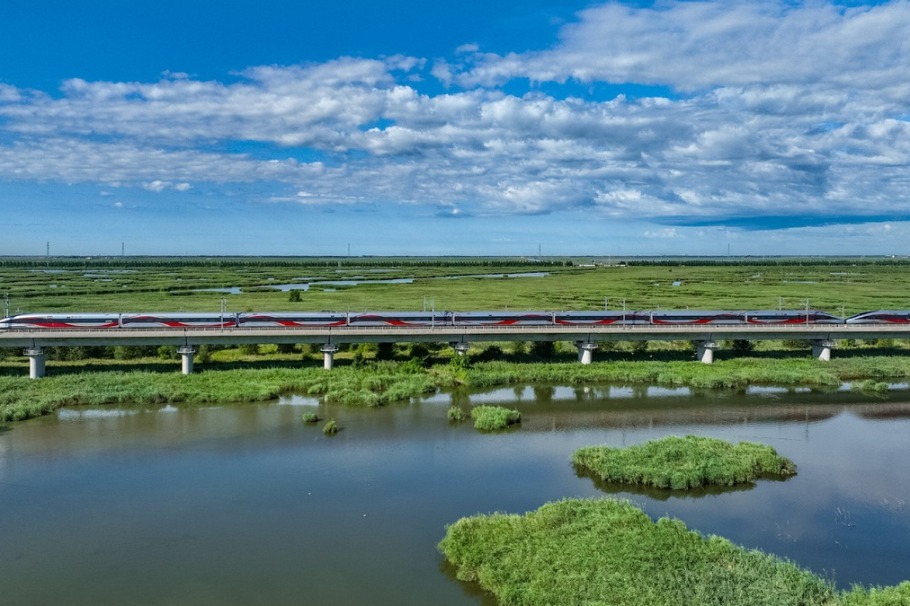US faces tough choices amid Red Sea crisis

WASHINGTON/LONDON — As the Pentagon asked allies to provide warships for an international task force to protect Red Sea commercial shipping from mounting drone attacks from Yemen this past week, some of the United States' closest partners appeared to be holding back.
The Pentagon said on Thursday that a total of more than 20 countries have agreed to participate in the new US-led coalition safeguarding commercial traffic in the Red Sea.
Still, the new Pentagon total would suggest that at least eight of the countries who have signed up have also declined to be publicly named, in a sign of political sensitivities of the operation as regional tensions soar over the latest Israel-Palestine conflict.
"We've had over 20 nations now sign on to participate," said Major General Patrick Ryder, press secretary of the US Defense Department, noting declarations by Greece. "We'll allow other countries, defer to them to talk about their participation."
The US launched Operation Prosperity Guardian two days ago, saying more than a dozen countries had agreed to participate in an effort that will involve joint patrols in Red Sea waters near Yemen.
Each country will contribute what they can, Ryder said, dubbing it a "coalition of the willing".
"In some cases, that will include vessels. In other cases, it could include staff or other types of support," he told a news briefing.
Immediate priority
Inevitably, the mounting disruption to global trade produced by the Red Sea crisis — as well as the need to avoid the Gaza fighting turning into a much larger conflict — is now the US' immediate priority. The longer attacks continue in the Red Sea, the greater the pressure on the US to strike Houthi targets within Yemen, Reuters commented.
The crisis in the Red Sea has grown out of the conflict between Israel and Gaza's ruling Palestinian Islamist group Hamas.
The Houthis and Lebanese Hezbollah have fired rockets at Israel since the conflict began on Oct 7. The Houthis, meanwhile, have stepped up their Red Sea attacks, threatening to target all ships heading to Israel and warning shipping companies against dealing with Israeli ports.
The attacks have disrupted a key trade route that links Europe and North America with Asia via the Suez Canal and caused container shipping costs to rise sharply as companies seek to ship their goods via alternative, often longer, routes.
The US, British and French navies have responded by shooting down Houthi drones and missiles.
However, attacking drones is likely to be an expensive process. It costs an estimated $2,000 to $20,000 each, but the missiles US and other allied warships are likely using to bring them down may cost in excess of $1-2 million a shot.
Agencies Via Xinhua
Today's Top News
- Book on Xi's views on strengthening, revitalizing armed forces published
- China supports Ukraine peace talks between all parties
- China to hold press conference on military parade preparations
- Vast gap has to be bridged for peace to arrive in Europe
- AI powering China's industrial evolution
- Tech innovation propels nation's industrial future





























